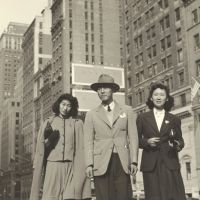"Oh, what happy people they must have been!" Thus Yukie Chiri (1903-22), reflecting on the pristine past of her people, the Ainu of southwestern Hokkaido. "Ainu Spirits Singing" (University of Hawaii Press) by Sarah Strong is an elegy to a lost time and an almost lost culture, seen largely through Chiri's eyes. She died very young but lived long enough to transcribe 13 haunting Ainu oral tales known as yucar, presented here in Strong's translation.
Were the Ainu of old really as happy as Chiri, unhappy herself as Japanese settlers swamped and stifled Ainu ways, liked to think? Maybe not. Or maybe they were, in ways we can no longer imagine.
Tokugawa Japan (1603-1868) is one of the strangest times and places in world history — 250-odd years of isolation and peace presided over by a military-Confucian aristocracy. "Performing the Great Peace" (University of Hawaii Press) by Luke Roberts helps us understand what made it work. Tokugawa thought processes were very different from ours, Roberts shows. Our modern minds recoil, for example, from the notion that truth is not absolute but depends on the social and administrative status of the person you're talking to. Difference shouldn't preclude understanding. Two and a half centuries of peace is a rare and notable achievement.
Two books on the theme of oppression and exploitation round out the list: "The Okinawan Diaspora in Japan" (University of Hawaii Press) by Steve Rabson and "After Camp" (University of California Press) by Greg Robinson.
The former portrays Okinawans who fled poverty in their home prefecture in search of a better life on the mainland. The latter depicts Japanese-Americans interned as "traitors" during World War II. The moral implicit in both: Prejudice is universal but hopefully not eternal.
Michael Hoffman's latest novel is "The Naked Ear."

















With your current subscription plan you can comment on stories. However, before writing your first comment, please create a display name in the Profile section of your subscriber account page.